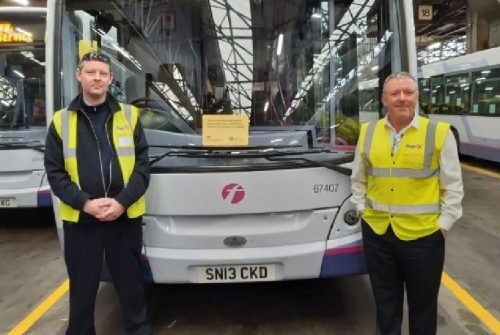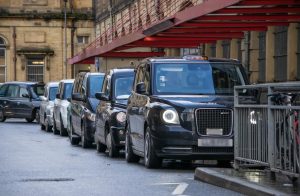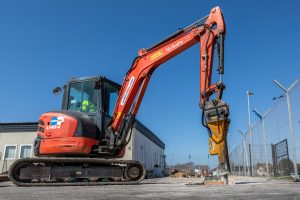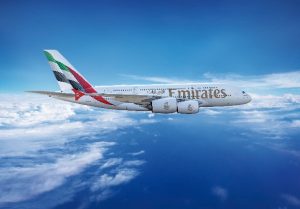Bus group begins clean air technology refit to its fleet

Engineers at bus operator First Manchester have begun a programme to fit clean air technology to the engines of its diesel fleet which will reduce emissions of nitrogen oxides (NOx) from the exhaust by 95% compared with older models.
The conversion is being undertaken on 90 buses – 36 single-decker and 54 double-decker – and will make the environmental performance of the vehicles equivalent to the latest Euro 6 standard of diesel engines, the best available.
Ian Humphreys, managing director of First Manchester, said: “This retrofit programme marks an important stage in our determination to help create cleaner air in Greater Manchester and develop an ultra-low emission fleet.
“Our engineers have planned a schedule for the modification around the daily maintenance of the fleet and we expect to convert three or four buses a week and be completed by March next year.”
The retrofit of the diesel fleet is supported by £1.4m funding from Transport for Greater Manchester secured through the Government’s Clean Bus Technology Fund.
Cllr Mark Aldred, chair of the Greater Manchester Transport Committee, said: “Buses are the backbone of our transport network and as we look to build back better from the virus, it’s important we take the opportunity to ensure vehicles are cleaner and greener than ever, which is why Greater Manchester is developing proposals to deliver its strategic objective of a zero-emission bus fleet.
“We need to take action to improve air quality, now and for future generations, and retrofit programmes like these are a good example of how we want to help deliver this ambition.”
The work will be carried out at First Manchester’s Oldham depot from where almost all the buses involved are based, except for two at its Bolton depot, which operates the Vantage service from Leigh and Atherton to Manchester Royal Infirmary.








